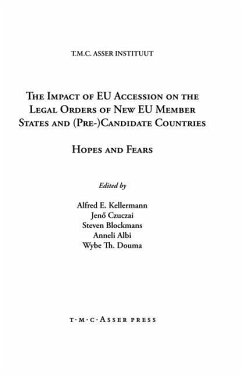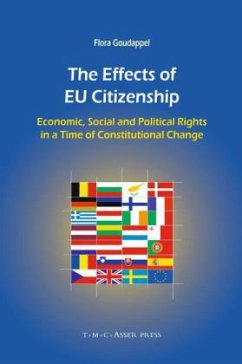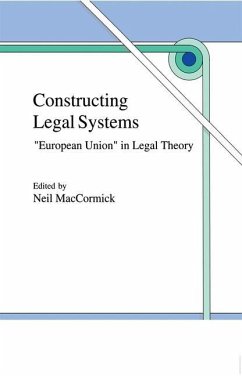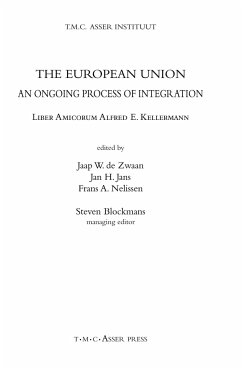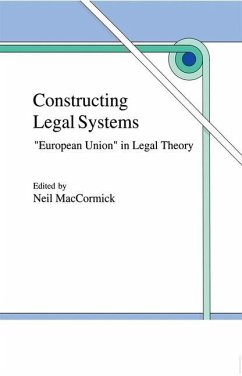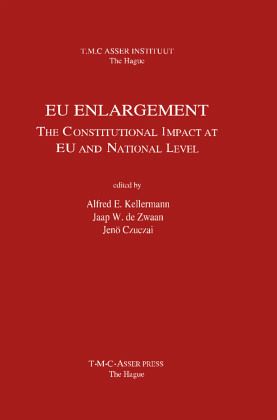
EU Enlargement:The Constitutional Impact at EU and at National Level
Versandkostenfrei!
Versandfertig in 1-2 Wochen
116,99 €
inkl. MwSt.

PAYBACK Punkte
58 °P sammeln!
The subject of this Conference concerns the impact the enlargement of the Euro pean Union has on the constitutional provisions of both levels of European ad ministration, the national and the European level. This subject is the more attractive because the 'constitutional' impact of en largement is an essential element in the context of the 'rule of law' as one of the 1 general principles of the Union. Here a relationship does exist with objectives such as a good and transparent system of governance, a democratic legislative process, an independent judiciary and an adequate system of legal prot...
The subject of this Conference concerns the impact the enlargement of the Euro pean Union has on the constitutional provisions of both levels of European ad ministration, the national and the European level. This subject is the more attractive because the 'constitutional' impact of en largement is an essential element in the context of the 'rule of law' as one of the 1 general principles of the Union. Here a relationship does exist with objectives such as a good and transparent system of governance, a democratic legislative process, an independent judiciary and an adequate system of legal protection. As to the national level, the implications membership of the Union has for the constitutional texts of the (candidate) member States have a connection with the fundamental characteristics of Community law such as priority of European law (over national law), direct applicability and direct effect. These principles reflect the interest in ensuring that European law, once applied in the national context by the public authorities or the judiciary, is made fully effective, for the benefit not only of the public authorities but also of the ordinary citizen.






